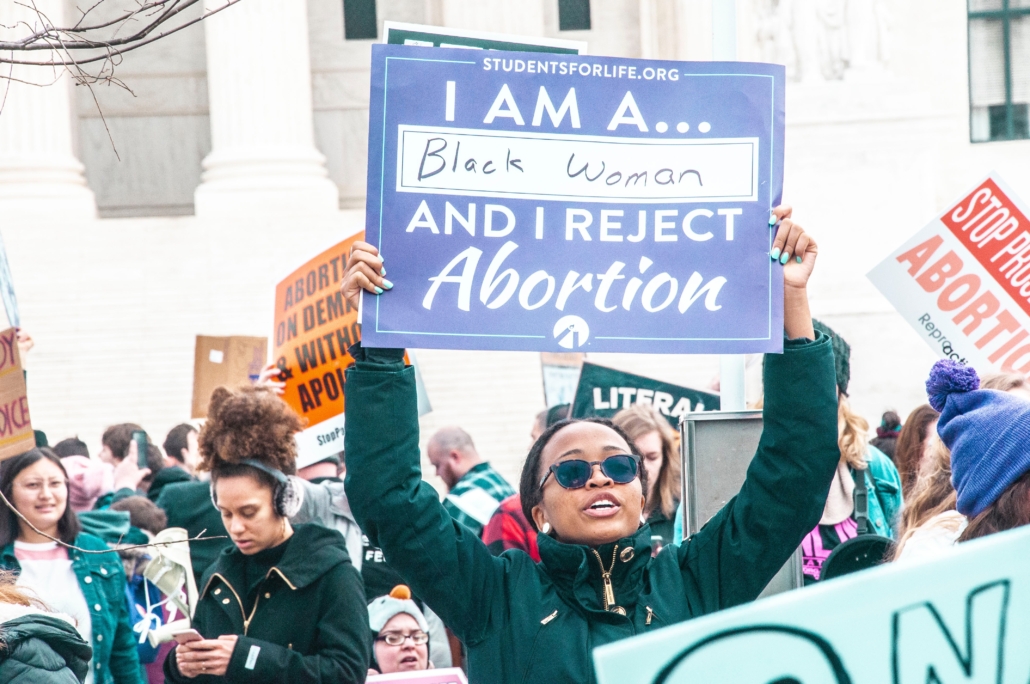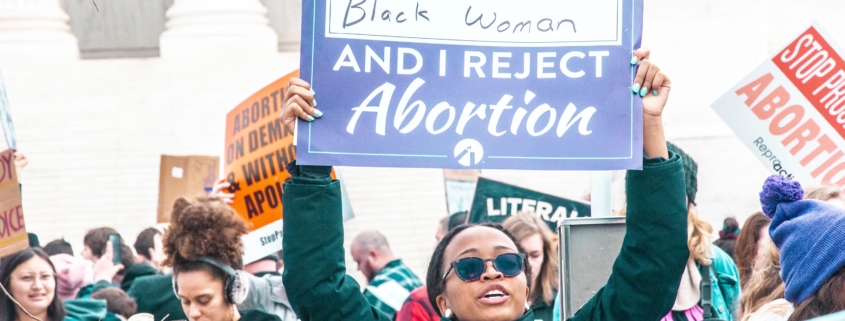The Shared Rhetoric of Black Lives Matter and Anti-Abortionists

When it comes to the slogan “Black Lives Matter,” many people misinterpret it to mean that only Black lives matter. They wrongly interpret the BLM movement as excluding or ignoring the injustices faced by any and all other demographics. They respond (some maliciously, but many in mere ignorance), “All lives matter.” In saying this, they technically aren’t wrong, but they’re missing the point. The BLM movement is focusing on one particularly marginalized demographic that needs special attention and advocacy. It’s far from a denial that other people need help and attention.
So it is with the anti-abortion movement. To borrow language from BLM, the anti-abortionist mantra is, “Unborn lives matter.” The focus is on one particularly marginalized demographic that needs special attention and advocacy. It is far from a denial that other people need help and attention.
Just as it would be wrong to tell a BLM activist, “We won’t take you seriously until you show that you also care about Latino lives and Asian lives and Native American lives,” so it would be wrong to tell an anti-abortionist, “We won’t take you seriously until you show that you also care about starving children and single moms and death row inmates.”
Now, some might dispute the focus of the anti-abortion movement. They might say that, because activists call themselves “pro-life,” such a blanket term necessitates that they value all lives—that they say, in effect, “All lives matter.” And if they don’t value all lives, they are being inconsistent at best and hypocritical at worst. But that argument fails for at least two reasons.
First, it’s dangerous to step into a movement you’re not a part of and tell them what their self-chosen title “actually” means. (We could once again refer to the BLM movement, and all the “meanings” assigned to its slogan from those on the outside.) There is no inherent inconsistency in viewing unborn life as deserving of most attention (seeing as how it is arguably the form of life most neglected and belittled in society), and therefore calling one’s position “pro-life.” Again, the movement itself determines the meaning of its name.
Second, the national media routinely refers to the pro-life movement as an “antiabortion” movement. In many cases, that terminology is a matter of strict policy. (For example, NPR chooses to use the terms “antiabortion” and “abortion rights opponents”). Why the refusal to use the term “pro-life”? The answer is likely complex, but the part that concerns the discussion at hand is this: those in the media recognize that the focal point of the pro-life movement is advocacy of the unborn; the media’s insistence on the term “antiabortion” is a clear acknowledgement of this fact.
All factors considered, if the premise of the Black Lives Matter movement is true (i.e., “Black lives should matter more to society”), then its narrow focus is legitimate. Similarly, if the anti-abortion premise is true (i.e., “fetal lives should matter more to society”), then its narrow focus is also legitimate.
Saying otherwise is inconsistent, illogical, and uncharitable—all of which fails to help move the abortion debate forward in any meaningful sense.
[Today’s article is by guest author Cap Stewart. Photo credit: Maria Oswalt on Unsplash.]




Leave a Reply
Want to join the discussion?Feel free to contribute!